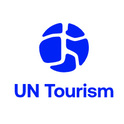UNWTO and San Marino to Host European Conference on Accessible Tourism
The Republic of San Marino will host the second edition of the UNWTO European Conference on Accessible Tourism in November. Further advancing UNWTO’s commitment to making tourism open to all, the Conference will showcase innovation, public-private partnerships and inclusive policymaking.
Accessible Tourism: A Priority for the Sector
UNWTO is committed to guiding the global tourism sector towards greater accessibility and inclusivity.
- According to the World Health Organization (WHO) 1.3 billion people worldwide experience significant disability, making participation in tourism challenging.
- Around one quarter of the EU population, 87 million people, already has some form of disability (EUROSTAT).
- Article 30 of the Convention on the Rights of Persons with Disabilities advocates for ensuring that persons with disabilities have access to cultural, sporting, recreational and tourism facilities, activities and services.
UNWTO: Building a More Accessible Tourism
In June 2021, the first comprehensive international standard on accessible tourism, ISO 21902 Accessible Tourism for All, was published by ISO. UNWTO and partners led the development of this new global guidance tool.
- The UNE-ISO 21902 standard establishes requirements and recommendations for accessible tourism
- It addresses service providers and tourism operators as well as public administrations and tourism destinations.
Towards the 2nd European Conference on Accessible Tourism
During the 68th meeting of the UNWTO Commission for Europe held in the Bulgarian capital, Sofia, the Minister of Tourism of the Republic of San Marino, Federico Pedini Amati, formally announced the 2nd European Conference on Accessible Tourism: Tourism for All will take place in San Marino on 16-17 November 2023.
- UNWTO and San Marino will provide a platform for governments, destinations, the private sector and civil society to discuss the best ways to prioritize accessibility in any tourism policy or strategy.
- The Conference will make clear the many benefits of more accessible tourism, from creating jobs and boosting economies to allowing more people to travel and strengthening international solidarity and cooperation.
- The Conference will further discuss how the application of Universal Design principles and cutting-edge solutions to making natural and cultural environments more accessible, is a game-changer.
RELATED LINKS
- UNWTO and Partners Advance Shared Accessibility Agenda for Tourism
- Publication of first international standard on accessible tourism for all, led by UNWTO, Fundación ONCE and UNE
- Tourism for all – UNWTO presents “Accessibility and Inclusive Tourism Development” - Compendium of Best Practices
About UN Tourism
The World Tourism Organization (UN Tourism), a United Nations specialised agency, is the leading international organisation with the decisive and central role in promoting the development of responsible, sustainable and universally accessible tourism. It serves as a global forum for tourism policy issues and a practical source of tourism know-how. Its membership includes 166 countries, 6 territories, 2 permanent observers and over 500 Affiliate Members from the private sector.
Media enquires: [email protected]
UN Tourism Communications Department
+34 91 567 8100
UN Tourism
